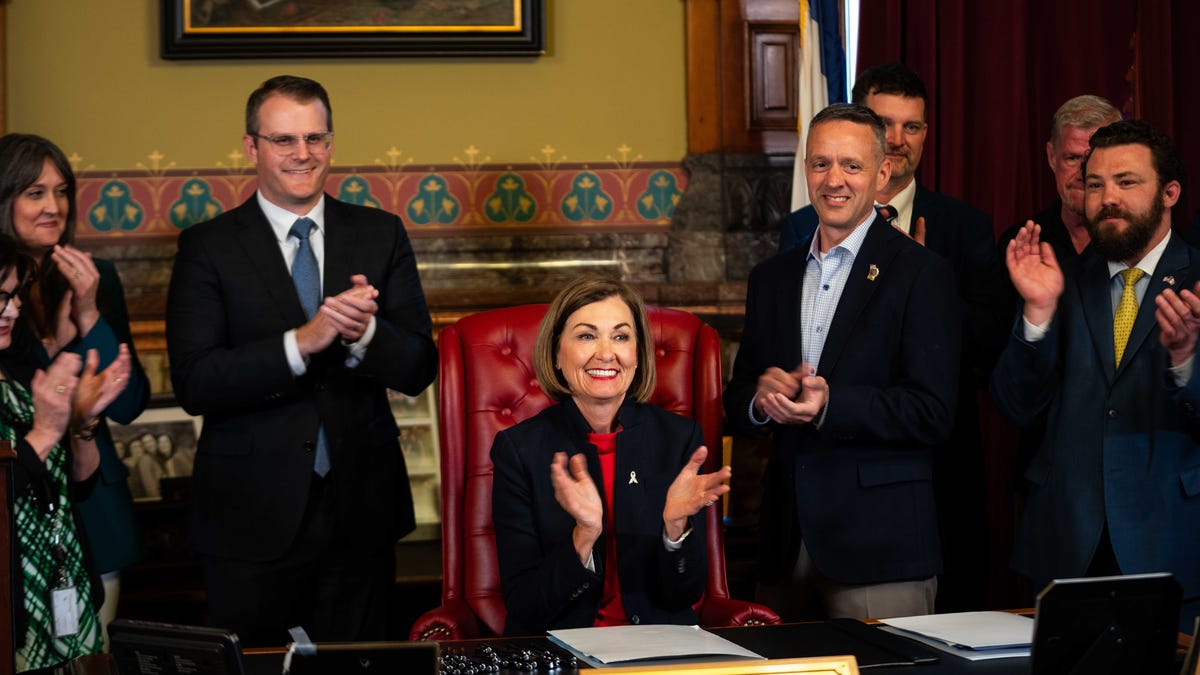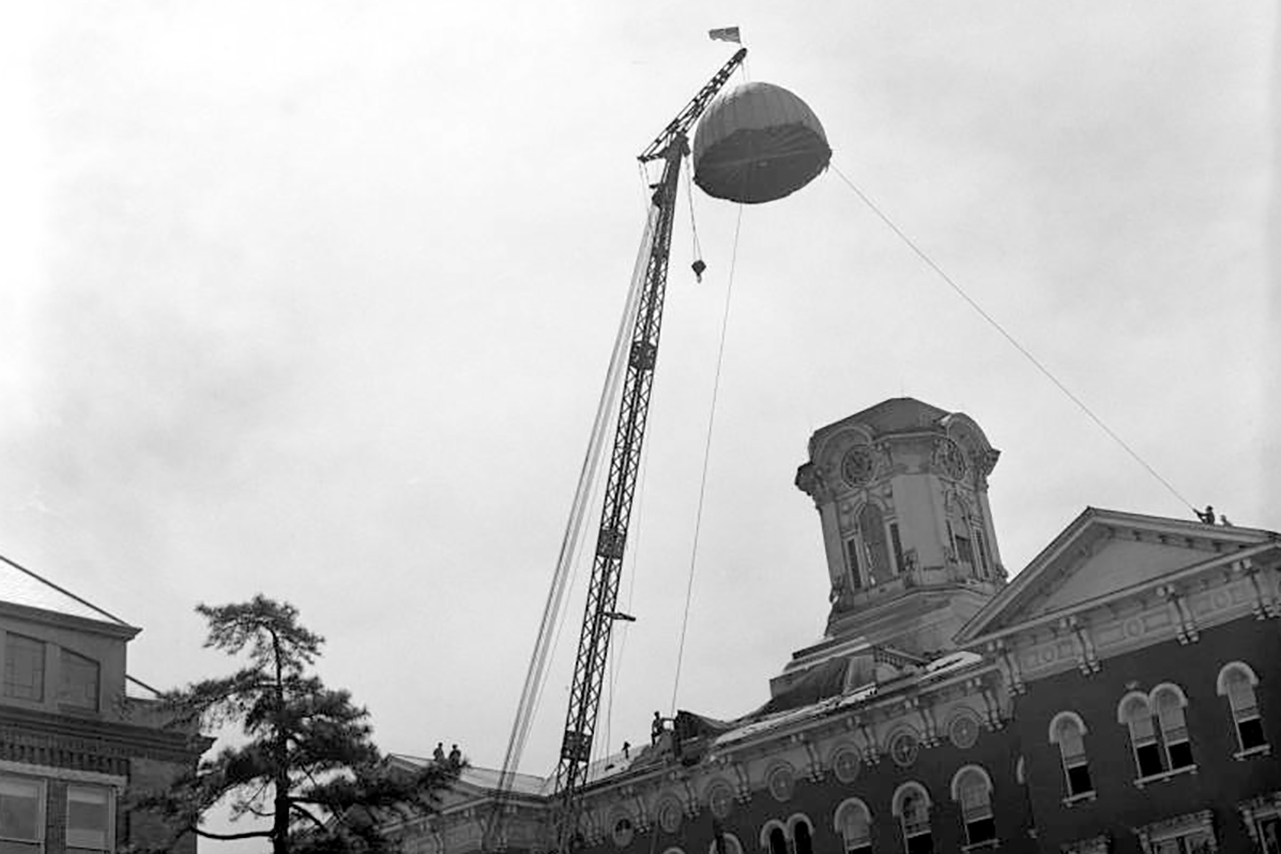South-Carolina
Bill advancing at SC State House would make period products tax-exempt

COLUMBIA, S.C. (WCSC) – If you buy gift-wrapping paper, livestock or even a rollercoaster in South Carolina, you won’t pay any sales tax.
But you will on a box of tampons.
Despite being a monthly essential for many South Carolinians, period products, like tampons, pads, and menstrual cups, are not tax-exempt as other medical use products are.
“Period products are medical necessities. The FDA actually classifies them as Class II medical devices for tampons, and pads as Class I medical devices,” Ashley Lidow of the Women’s Rights and Empowerment Network said.
A bipartisan bill advancing at the State House, H.3563, would exempt period products from state and local sales taxes — a cost that supporters argue is only imposed on a specific group of South Carolinians and disproportionately affects many of them.
“Two in five menstruaters in South Carolina report struggling to purchase pads, tampons, and liners,” Karen Dudley-Culbreath, executive director of the Greenville-based nonprofit The Period Project, testified to an all-male Senate Finance subcommittee Wednesday.
Dudley-Culbreath sees it firsthand.
Her organization has distributed more than 130,000 period packs around the state, focusing on South Carolina schools especially.
“Not having access diminishes one’s dignity, contributes to mental and physical health issues, and impacts the viability of our state,” she said.
The bill senators advanced Wednesday to the full Finance Committee has already passed the House of Representatives unanimously. It needs to get through the Senate in the next few weeks, before the legislative session ends in mid-May, to reach the governor’s desk.
Sen. Katrina Shealy (R-Lexington) and the lead sponsor of the Senate version of the legislation, expects it will soon be on the floor of the upper chamber, where she anticipates it will also pass.
Shealy said this tax should have been removed long ago.
“This is something that is so needed in South Carolina because there are so many women, as you heard them say, that’ll miss school, young girls that’ll miss school, people that’ll miss their job because they don’t have the products, they’re insecure,” she said.
Supporters said enacting this would be a huge help for the South Carolinians dealing with period poverty, so they don’t have to make the decision of whether to buy these products instead of groceries or gas.
“It’s time to acknowledge that menstrual hygiene products are not luxury items but essential items for the health and dignity of individuals,” said Thrisha Mote, a junior at the University of South Carolina and co-founder of the advocacy group No Periods Left Behind, which raises awareness about period poverty on campus.
A fiscal impact report found local governments combined would lose about $1.4 million annually by exempting these products from sales taxes, while the state would be out about $6 million each year.
Advocates argue in light of the $13 billion proposed state budget, that’s not a huge hit for state coffers.
Copyright 2024 WCSC. All rights reserved.

South-Carolina
15 years.

I’ll never forget discovering GamecockCentral.com.
Growing up, I wasn’t really into college sports. I was more of an NFL, NBA kid. That’s what was on the TV growing up. Being from Anderson, I was generally surrounded by Clemson and Georgia fans. While neither of those segments was able to capture me, there wasn’t exactly a wealth of Gamecocks around, either.
It wasn’t until high school, when I took a visit to South Carolina’s campus with my friend, that I began to understand.
My buddy’s sister went to Carolina and invited us down to Columbia. The Georgia Bulldogs were in town. Troy Williamson took a slant 64 yards for a touchdown. Ko Simpson picked off David Greene and took it to the house. The fans in Williams-Brice Stadium were losing their minds.
The second half didn’t go as well. The Gamecocks would go on to lose a heartbreaker, 16-10.
It didn’t matter to me.
I was hooked.
From there, I started really paying attention. I looked online for websites with information on USC sports and recruiting and came across a cool website run by someone named Brian Shoemaker.
I was a poor college kid, but I just had to get the premium subscription anyway. The information was too riveting, the message boards too entertaining.
From a computer in my Whaley’s Mill apartment on USC’s campus, I perused recruiting profiles and discussed with friends all the four-star prospects who were definitely going to be the next stars in Columbia.
I could have never predicted that that website would allow me to be employed just a few years later.
And I couldn’t have dreamed that I would still be here 15 years after that.
The plan at USC was to finish undergrad and go to law school, but I had always enjoyed writing. My first job out of college was as a legal assistant for a criminal defense attorney.
I was so deep into the world of Gamecock sports that I began to do some freelancing. I sometimes did this in the middle of my duties helping to defend the wrongfully accused. The first football story I ever wrote online was a piece on South Carolina’s special teams, coached at the time by Shane Beamer.
I had opened up a conversation with Shoe about possibly doing some part-time work for him. One day, he sent an email that went something like this:
“Actually, I’m going to have a full-time position open.”
I was surprised, mainly that he would want to talk with me about that job. Nonetheless, an interview was set.
The meeting took place in – almost hilariously now – the Whitney Hotel.
Somehow, I got the job.
I think it’s most likely because some guy named Wes Mitchell was under contract elsewhere and Shoe couldn’t hire him.
Either way, I was in. And boy, was I clueless.
On top of getting married in just a few months and needing to buy a house, I also needed to really learn how to do this job that Shoe had hired me to do. I was stepping into a competitive market with little experience. The vast majority of USC fans would have no clue who I was, and for good reason.
I had a little runway before I would officially start, but I got to work behind the scenes. I cold-called potential sources and worked on building relationships. I tried to absorb and learn what I could, but I had a long way to go.
That first summer, I covered one of Steve Spurrier’s summer camps. Spurrier, who was brilliant but sometimes aloof, ran across me. When he found out I was with the media – even though the camps were open to everyone including media – he nearly kicked me out. Then-quarterbacks coach G.A. Mangus stood nearby, watching it all and trying not to laugh.
Not all was smooth at the beginning. Plenty of other things happened in those early days that were not funny. Many lessons were learned the hard way.
I onboarded at a fun time. Spurrier was recruiting a running back who could revolutionize the team in Marcus Lattimore. The Gamecocks made the SEC Championship game for the first time ever the second year I covered the program.
Before college football got all paranoid, we viewed entire preseason practices. I sat in my tailgating chair on the old Proving Grounds, watching Alshon Jeffery go against Stephon Gilmore in practice.
Clowney arrived. The team won 33 games in three seasons and beat Clemson for five straight seasons.
A couple years later, Spurrier left. It happened unexpectedly at the end of a Monday night practice. Wes – who had by then joined us at GamecockCentral – and I worked to run down the story, beaten barely by a national reporter.
We covered the hiring – and firing – of Will Muschamp, then the search that led to Shane Beamer.
I’ve had a chance to hear the funniest, craziest stories. I’ve been fortunate to break some stories. I’ve been beaten on a bunch of them, too.
There’s not much, by the way, like the thrill of chasing a big scoop and being able to publish it.
That feeling still pales in comparison to the joy from the relationships I’ve been able to form because of this job. I’ve met people I never would have otherwise met in these 15 years. I am very thankful for all those folks and to everyone who’s done so much for me professionally and personally. It seems almost silly sometimes that this is how I get to make my living.
The people that I need to thank the most are the ones that are reading this.
A lot has happened in 15 years. The football team has won games and lost games. Recruits have committed, decommitted, transferred, and even transferred back. On a personal level, I’ve had two children, lost my dad, and gone through more of the real world stuff that gets all of us at one point or another.
Through all of, GamecockCentral has been a constant. You all have been there.
When I published my first Insider Report 15 years ago today, you gave me a chance.
When I stepped away for a bit in the summer of 2022, you all were waiting when I came back.
A couple of years before that, none of us knew if we would even have jobs for much longer, because sporting events were on halt. You stayed subscribed, and we’re still here.
To everyone who has logged on to GamecockCentral.com to read one of our stories, I appreciate you.
For all of our subscribers – many of you far predate my arrival here – the fact that you trusted us enough to join is the reason I get to have this incredible gig.
I hope I can have it for a while longer.
[GamecockCentral for $1: In-depth coverage and a great community]
South-Carolina
Richland County, SC: Center Of South Carolina’s Eco Devo Boom

Sponsored by
Richland County and the state capital, Columbia, anchor central South Carolina and are at the heart of an economic development boom that’s still building, with plenty of room left to grow.
The county is coming off a second-straight year of record-breaking economic development. Notching announcements in 2023 totaling more than $2.35 billion and 4,500 new jobs, Richland County’s wins made up roughly 25% of capital investment and one-third of new jobs announced across the Palmetto State.
Scout Motors, a Volkswagen affiliate expected to begin producing electric pickups and SUVs in late 2026 or early 2027, headlined the economic news. The county is now seeing interest from EV-related suppliers interested in setting up shop nearby to support the automaker.
Here, they’re finding sites to flourish in a community uniquely positioned halfway between New York and Miami, with access via Interstates 77, 20, and 26 to more than 43% of the U.S. market via an 11-hour drive.


Columbia Metropolitan Airport (CAE) hosts the largest air cargo operation in South Carolina, anchored by UPS and FedEx, and is the passenger air hub for the Midlands region. Charlotte and Atlanta airports, two of the world’s busiest, are about a 2- and 3.5-hour drive, respectively. Norfolk Southern and CSX railways serve the Columbia market, and the ports of Charleston and Savannah are two to three hours away.
Richland County’s economy is also notably diverse and stable. With a population of approximately 420,000, we’re home to South Carolina’s state government as well as the state’s flagship university — the University of South Carolina (USC) — and to Fort Jackson, where the U.S. Army produces nearly half of its soldiers, putting some 50,000 recruits through basic training every year, and assists soldiers entering the civilian workforce through its Transition Assistance Program (TAP).
A sampling of significant announcements of late include:
- Scout Motors: The $2 billion assembly plant under construction off I-77 in Blythewood is committed to providing 4,000 jobs and producing 200,000 all-electric SUVs and pickup trucks a year when it hits full capacity. The all-new Scout lines are a revival of the legendary Scout brand that was recently acquired by Volkswagen.
- Cirba Solutions: The Charlotte-based battery recycling company is investing more than $300 million in a world-class lithium-ion electric vehicle (EV) battery recycling flagship facility that will create more than 300 jobs on a 200-acre campus in Columbia.
- The Ritedose Corporation: A major manufacturer of generic single-dose medications, Ritedose is investing $81 million and creating 100 new jobs on a 105-acre site at its current home at Carolina Research Park in northeast Richland County.
- McEntire Produce: The 75-year-old, family-owned firm is investing $26.2 million in upgrades at its Columbia operation that will create 40 new jobs and a state-of-the-art facility that processes lettuce, tomatoes, onions, and coleslaw mix for fast-food restaurants and other wholesale customers.
- TMC Transportation: The Iowa-based flatbed carrier firm is consolidating three local facilities into a single campus headquarters in Columbia. The 44-acre site will include an operation and logistics office, maintenance facility, and driver training center and represents a $38 million investment and 185 new jobs.
An Educated, Ready Workforce
Richland is the largest county in the Columbia Metropolitan Statistical Area (MSA) and second largest in South Carolina. The seven-county MSA provides a labor pool of about 400,000 people available to existing and new businesses. A strong foundation of public and private primary and secondary schools feeds into a higher education community anchored by the 35,000-student USC near downtown Columbia and the 10,000-student Midlands Technical College (MTC).
MTC boasts multiple campuses within the county and numerous others in just a short drive. Together, they provide access to highly affordable two-year start to a four-year education and to a wide range of industry- and company-specific offerings. MTC is also a major participant in readySC, one of the most experienced workforce training programs in the country.
Columbia and Richland County also are home to diverse higher-education opportunities, including two HBCUs — Benedict College and Allen University — and Columbia College and Columbia International University.
Affordable, Attractive Living Options And Lifestyle
Long-known as the state’s government and educational hub, downtown Columbia is undergoing a revitalization and thriving in new and exciting ways. The capital city is attracting a new, eclectic mix of living opportunities appealing to students, young professionals, and long-time residents. This influx of activity has helped bolster the city’s growth in unique eateries, retail spots, and vibrancy, and support existing attractions like the Colonial Life Arena, home to the three-time NCAA champion Gamecock women’s basketball team.
Columbia also offers a unique blend of Southern charm and urban energy with a rich history and vibrant cultural life. There are several historic neighborhoods featuring antebellum through early 20th century homes, trendy in-town bungalow-filled neighborhoods with shops and cafes, and long-established and brand-new suburban neighborhoods that provide a lot of house for the money through all price ranges.
Columbia offers a unique blend of Southern charm and urban energy with a rich history and vibrant cultural life.
A local favorite, USC’s Williams-Brice Stadium (aka “Willy B”) regularly sees crowds of 75,000 faithful football fans for SEC showdowns. Baseball is also a big hit here, with both USC’s baseball stadium and Segra Park — home to the Columbia Fireflies, a Class A affiliate of the Kansas City Royals — drawing crowds from around the nation.
History and art attractions also abound, such as the South Carolina State Museum, EdVenture Children’s Museum and Columbia Museum of Art. World-renowned Riverbanks Zoo & Garden — nestled on both sides of the Saluda River — brings out the wild side of this community.
The Saluda River itself passes through Lake Murray, the 47,000-acre “Jewel of South Carolina” that is a magnet for boating, lake living, and a regular host of national fishing tournaments. The Saluda and Broad rivers join here to form the Congaree River and all three are lined by the walking and biking trails of the Three Rivers Greenway.
A Great Place To Locate, Live, And Work
Industrial prospects who check us out will find we offer an unparalleled balance of lifestyle and business opportunities to make your dollar go farther. The cost of living in Columbia, as well as the cost of commercial and industrial land and buildings, compares favorably to national averages, while our state and local governments also are experienced in creating the incentive packages companies need to make their investments work.
To learn more about the opportunities, including sites and buildings, available in Richland County, South Carolina, please visit Richland County Economic Development at richlandcountysc.com.
Richland County is part of the five-county S.C. I-77 Alliance. Check us out at www.i77alliance.com for robust economic and demographic data, available sites, and much more.
South-Carolina
Medical marijuana bill stuck in SC House as legislative work winds down

A yearslong effort to legalize marijuana strictly for medical use in South Carolina may have to wait another year.
There are less than two weeks left in the legislative session. As of Wednesday, that amounts to five days before lawmakers finish their work for the year.
And the bill championed by Republican Sen. Tom Davis that passed the Senate earlier this year remains stuck in a House committee.
“I intentionally, you know, got the Senate to move it up and move it quickly,” Davis told SC Public Radio. “It got passed out I think the first or second week in February to get it over to them in time. And, so, they’ve had over two months, and it’s just been sitting in committee. And, look, that is frustrating.”
Dubbed the “Compassionate Care Act,” the bill would only legalize marijuana for use in oils, patches, salves, and vaporizers.
It could only be prescribed by a doctor for certain uses. They include cancer, multiple sclerosis, sickle cell anemia, Crohn’s disease, neurological diseases, or disorders, like epilepsy, and post-traumatic stress disorder.
Davis, a Beaufort-based senator, has advocated for medical cannabis use for a decade.
Two years ago, the Senate passed Davis’s proposal. The House threw it out on a technicality.
So, like in past years, Davis tightened the bill to appease wary colleagues.
“South Carolina is a more conservative state than California and New York and Illinois,” he said. “And, so, I don’t make any apologies for the fact that this is a very conservative, tightly regulated bill.”
Davis’ colleagues aren’t the only group the senator’s had to appease.
Most in law enforcement oppose it.
That includes State Law Enforcement Division Chief Mark Keel.
“You know, I’ve heard some people say well, ‘Chief, we’ve got it in 33 other states, so what’s the difference?’ Well, we’re learning what’s happening in these 33 other states,” Keel testified last week at a S.C. House ad hoc committee. “We don’t have to be like them. South Carolina is different, and that’s why people are moving here, that’s why industry is coming here.”
In addition to his own warnings about the bill, Keel told lawmakers he might be willing to pull his opposition on one condition.
“The day that the FDA approves it, you’ll never see me downtown again. I’ll never be before another committee,” Keel testified.
There’s no way to say when the U.S. Food and Drug Administration might ever approve marijuana for medical use.
But Tuesday, the Associated Press reported that the Drug Enforcement Administration plans to reclassify marijuana as a less dangerous drug.
It’s a huge policy shift that is sure to motivate proponents.
Supporters like Jeff Moore, the former 32-year director of the state’s Sheriff’s Association.
“It gave him a relief from the nightmares, the grief, the constant tears, and gave him a chance to put his life back together,” Moore told those same lawmakers last week about his son, a high school dropout who joined the Army at 18 and was deployed to Iraq.
Moore said he came home a different person after he witnessed the deaths of five friends and the death of a 6-year-old girl, killed by a grenade during a home search.
During a later deployment in South Korea, his son turned to alcohol.
That was his downfall, Moore said.
He moved to Michigan, where marijuana is legal, and was in and out of rehab.
Today he’s 36, married, holding a degree in psychology and sociology.
He now works with people who have substance abuse problems.
Moore credits his son’s turnaround in part to marijuana.
“He knows it because he’s been through it, he’s lived it and he’s come out the other end,” Moore testified through tears. “Wouldn’t you want that for your son? Wouldn’t you? I couldn’t be more proud of him. I couldn’t.”
Sen. Davis said that he’ll respect the outcome. He just wants to see a vote on the House floor.
If the bill fails to become law by May 9, it’ll have to be refiled next year.
-

 Education1 week ago
Education1 week agoVideo: Dozens of Yale Students Arrested as Campus Protests Spread
-

 World6 days ago
World6 days agoHaiti Prime Minister Ariel Henry resigns, transitional council takes power
-

 News1 week ago
News1 week agoLarry Webb’s deathbed confession solves 2000 cold case murder of Susan and Natasha Carter, 10, whose remains were found hours after he died
-

 Politics1 week ago
Politics1 week agoFetterman hammers 'a–hole' anti-Israel protesters, slams own party for response to Iranian attack: 'Crazy'
-

 World1 week ago
World1 week agoPeriod poverty still a problem within the EU despite tax breaks
-

 World1 week ago
World1 week agoUS secretly sent long-range ATACMS weapons to Ukraine
-

 News6 days ago
News6 days agoFirst cargo ship passes through new channel since Baltimore bridge collapse
-

 World1 week ago
World1 week agoTurkey’s Erdogan meets Iraq PM for talks on water, security and trade



















